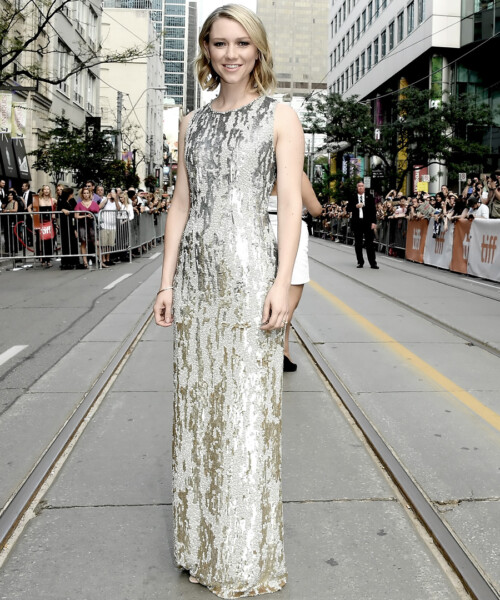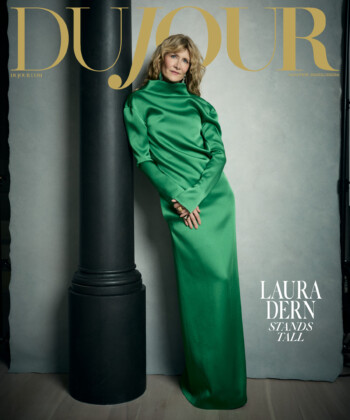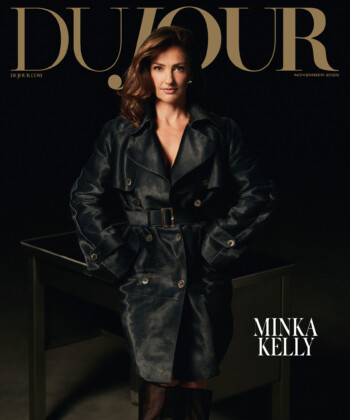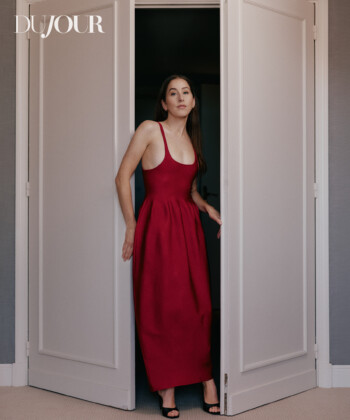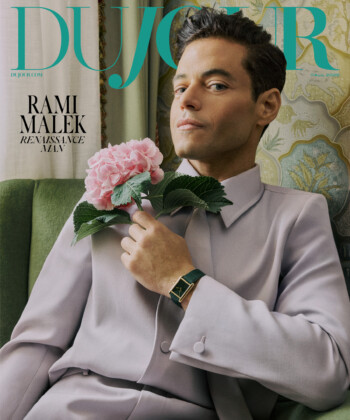A man named Seymour Levov—known as “the Swede”—meets a young woman at a hotel who purportedly knows the whereabouts of his missing daughter. Once in the room, the woman, Rita Cohen, berates the Swede for his shortcomings as a father, a businessman, a human being, then lays down on the bed, spreads her legs, and, imitating the speech impediment of his daughter, commands him to sleep with her if he ever wants to see his daughter again.
This scene, from the new adaptation of Philip Roth’s Pulitzer-winning American Pastoral, marks the film’s most acute point of discomfort—something that actor Valorie Curry, who plays Rita Cohen, relishes.
“I love having the opportunity to take up space in an unapologetic way,” says Curry, who spoke with me recently from her home in Red Hook, Brooklyn. Her work has reflected this attitude: in addition to her role as Rita Cohen, she starred as young psychopath Emma Hill in Fox’s The Following, in which her character goes so far as to kill her own boyfriend out of devotion to cult leader Joe (James Purefoy).
In American Pastoral, Ewan McGregor makes his directorial debut and also plays the Swede, whose idyllic life in New Jersey with wife Dawn (Jennifer Connolly) and daughter Merry (Dakota Fanning) in the ‘60s implodes when Merry blows up a post office in their small town in protest of the Vietnam War. Merry goes into hiding, and the Swede is forced to make dealings with Rita, who is helping to conceal Merry—from the authorities, but, more crucially, from the Swede.
“Rita is incredibly enigmatic,” says Curry. “I think of her as this train that just barrels through the story.” One that’s headed off the rails, perhaps? “I don’t think of Rita as unstable. Nobody thinks they’re the bad guy.” She adds, “I’m attracted to characters like Rita because they aren’t supposed to be liked.”
Despite her penchant for such roles, Curry says, “When I read the script I was kind of horrified. I thought, ‘How am I gonna do this?’” But director and co-star Ewan McGregor “created an environment where everyone felt empowered,” she says. “I felt freer than I’ve ever felt working.”
Playing characters like Rita Cohen can have its drawbacks. “Being a woman and playing a villain in this industry has been a shocking unveiling of misogyny,” says Curry.

Valorie Curry
Not dissimilar to what we’ve recently seen in our political landscape, perhaps, where candidates sling insults like “nasty woman” in nationally televised debates. American Pastoral, too, bears some prescience to what we’ve witnessed over the past several months from those who wish to lead our country.
“I think it’s very sad that we’re in an election where, unequivocally, the most qualified candidate to ever run for president is being asked to treat a racist, xenophobic misogynist bigot like an equal,” says Curry. “This is an example of what women have had to bear with grace for so many centuries.” Laughing, she adds, “Yeah. I have thoughts on politics.”
Given Rita Cohen’s own political radicalism, it’s good that Curry herself has skin in the game—though she takes a more measured approach in her own life. During a hiatus from acting, she worked as a political organizer with a grassroots organization, Peace Action West, and today, she’s outspoken on social media. (In a recent tweet referencing our Republican presidential candidate, Curry wrote, “He’s really committing to this whole ‘bigly’ thing,” and paired it with a gif of an exasperated Regina George saying, “Stop trying to make ‘fetch’ happen.”) This, too, has earned her the usual echo chamber of trolls, though she says at this point, “Most have unfollowed me—it used to be a lot worse.”
Curry has several irons in the fire, including a role on Amazon’s new hilarious superhero series, The Tick, in which she stars as protective older sister Dot Everest. “I’m happy to play a nice, thoughtful, empathetic human for the first time in a very long time,” she says. Even so, don’t expect Curry to steer completely away from the characters people love to hate any time soon. “There are relatively few roles for women where we’re not being asked to be likeable,” she says. “And I love getting ugly.”


























